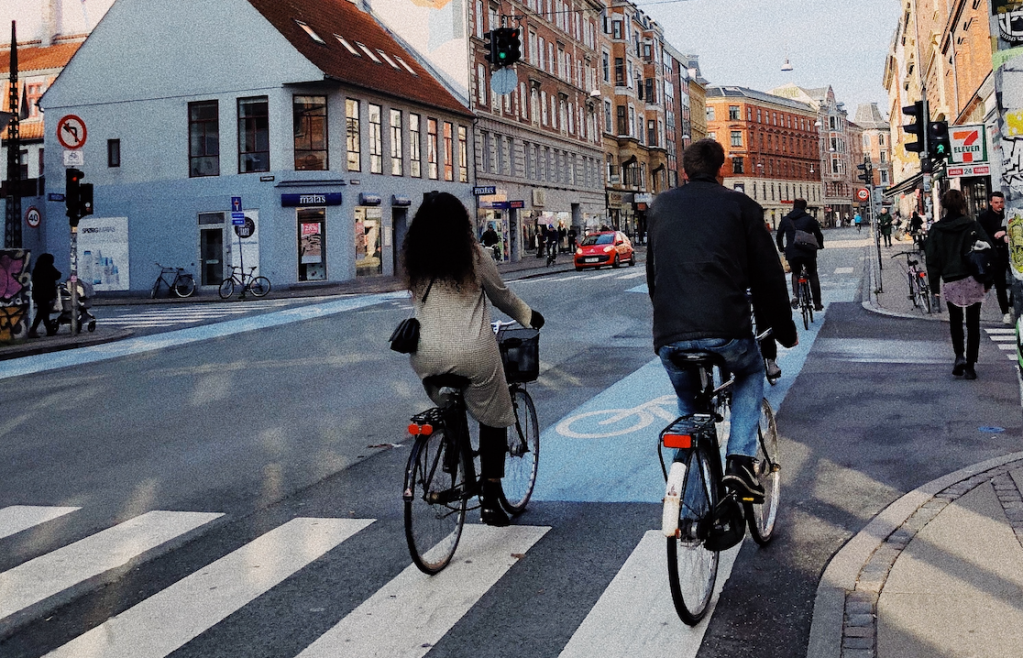Thomas Piketty’s Capital in the Twenty-First Century discusses how wealth becomes concentrated over time, leading to social and economic instability. That topic has long interested me but one paragraph left a particularly strong impression. Piketty describes how, in the 1880s, the cheapest bicycle in France cost half the average worker’s annual income. And this was for a basic machine, without pneumatic tyres or proper brakes. Rapid technological progress meant that by 1910 the cheapest bike cost a fraction of that: one month’s wages. By 1960, one could buy a high quality bike with brakes, mudguards, saddle bags, lights and a reflector for less than one week’s average wage. Piketty estimates that between 1890 and 1970, bike prices fell by 97.5 percent in real terms.
There are three reasons why that paragraph resonated with me. First, I love bikes. Second, I love examples of how technological progress has improved living standards. The third reason is a story I remembered about my grandad. My grandad, Tommy, was a carpenter – like his son, my father. He was born in 1915 in Longford town. When Tommy was about to turn 11, his father died, leaving the family with no income. Tommy’s childhood ended and he went out in search of work. He was taken on as an apprentice carpenter on condition that he would receive no pay in his first year. After six months, the master relented and started to pay Tommy a half crown (30 old pennies) per week.
Shortly after that, they took on a job to build a row of cottages near Abbeylara – more than 25 km from Longford. Tommy was given a bicycle but this was no company vehicle. For three months he was made to surrender his full pay to cover the cost of the bike. Thankfully, my grandad’s Ireland is a foreign country. Safety nets now help to protect families from destitution after the death of a parent. Apprentices have protected rights and far greater prospects of earning a living. Bicycles are so cheap that a new one can be bought for less than one week’s minimum wage. When comparing the costs to the benefits, bicycles are surely one of the greatest technologies ever developed. Despite this, rich societies tend to treat them as little more than a novelty. Perhaps that condescension is even because they’re so cheap.
There were once nine million bicycles in Beijing (Melua, 2005). You probably don’t need a singer-songwriter to tell you that China’s transition to a market economy has seen the bicycle ditched in favour of the car. Before you think I’m writing to mourn the loss of Mao’s China, I’m not. Opening up to trade lifted hundreds of millions out of abject poverty in one generation. The reduction in suffering is momentous. Nonetheless, even industrial China now realises it missed a trick with the trusty bicycle. And so did we. And no, I’m not referring to wheelies. China is now rolling out many incentives to get people out of their cars and back on their bikes.
Countries such as Denmark and the Netherlands have long rekindled their love of the bicycle as a solution to many of society’s ills. Consider just a few benefits. The total ownership costs of a bike are tiny and so a country with high quality cycling infrastructure is a socially inclusive one. Ireland’s transport emissions (Pandemic and recession aside) are rising every year but the total emissions from cycling are tiny (particularly if you’re on a low meat diet). Cycling also builds muscle and burns body fat, which is particularly significant given that two thirds of Irish adults are overweight. Cycling is incredibly efficient, while Dublin drivers spend the equivalent of a whole work week sitting in traffic jams every year. What would you do with an extra week of annual leave every year? These are just some of the benefits that we as a country lose out on because of our attitude towards cycling.

As I write this, the rain is beating on my roof. As you read this, the rain is probably beating on your roof. Who in their right mind would think that we should leave our lovely dry cars behind and take the bike instead? Well, in Copenhagen, the average annual rainfall is 746mm while in Amsterdam it is 850mm. By comparison, and despite a sense that it rarely stops raining, Dublin is practically Mediterranean with just 683mm of rain each year. What sets Ireland apart from our friends by the North Sea is a lack of infrastructure. We lack proper cycle lanes that form a coherent network. We lack adequate facilities in most workplaces. We lack the ambition to create public spaces that rival the best in Europe.
The humble bicycle is one of the closest things that we as a society have to a silver bullet. Extensive, safe, cycling infrastructure will not only help us achieve our climate goals, it will also save us time and money. It will make us happier and healthier. It will make us more inclusive and E-bikes will make cycling accessible to more and more people. Cargo-bikes will delivery our packages more efficiently. Children will smile with delight as they cycle their streets in safety. It is hard to imagine a just transition that doesn’t take cycling seriously.
Ireland’s total budget for active transport is roughly €300m. Less than that of the Netherlands, which already has world class cycling infrastructure. Moreover, county and city councils repeatedly fail to spend what budgets they have. When money is spent on cycling, it rarely follows international best practice. Ireland is a rich country that cannot afford to underspend on cycling. My grandad didn’t have much of a choice but by providing quality cycling infrastructure we can empower people to make cleaner, cheaper, and healthier choices.
CN
